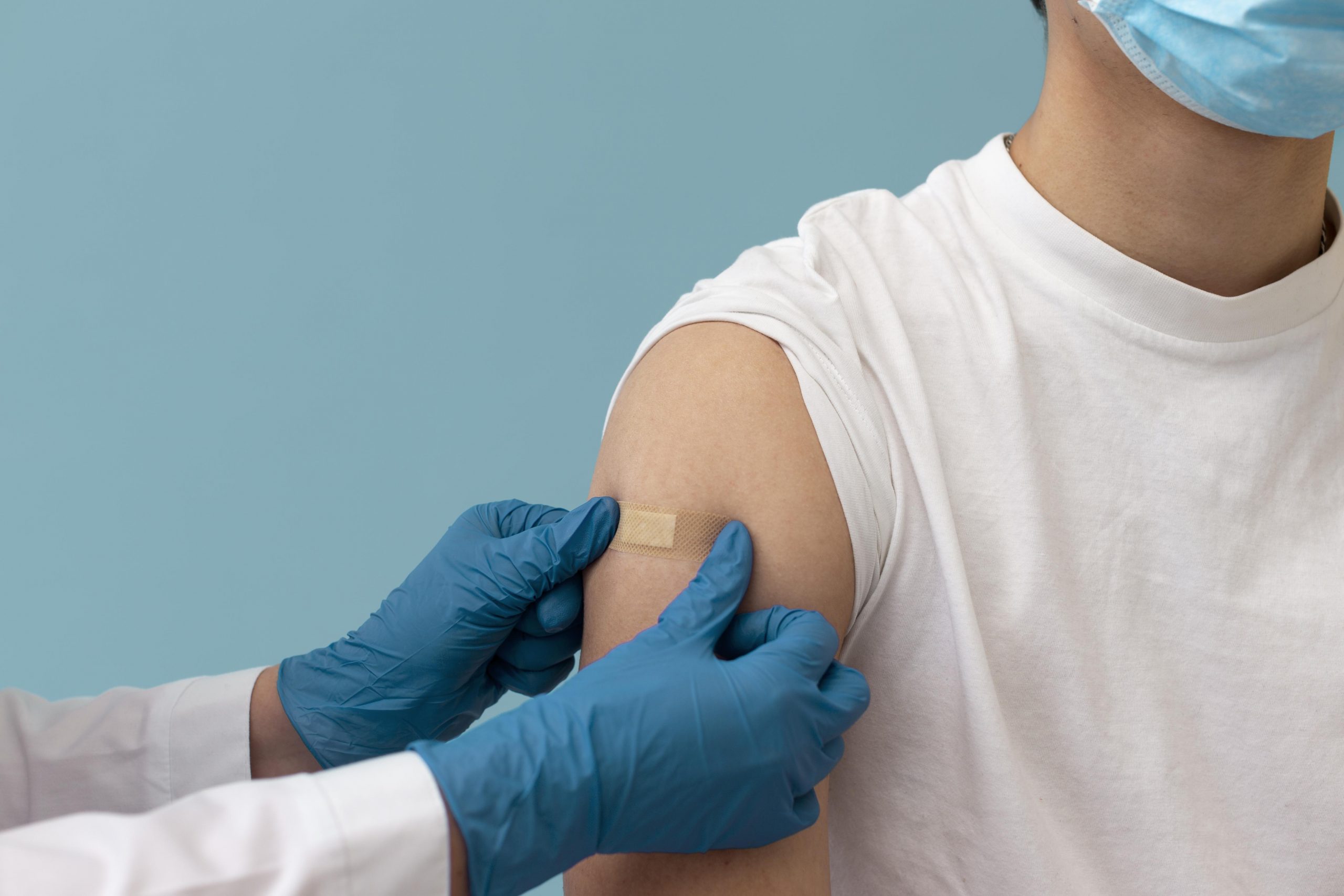With flu season upon us and many respiratory viruses circulating, the Joint Health & Safety Committee would like to take an opportunity to remind everyone of the shots and vaccines that are available in Ontario and recommended for most adults. Maintaining immunity against vaccine-preventable diseases is an important part of Circle of Care’s Occupational Health & Safety Program. Immunization will not only safeguard the health of employees and individuals in service, but also plays a role in containing the spread of disease, reducing health care requirements and decreasing employee absenteeism. . If you have questions about whether or not a vaccine is right with you, please communicate with your doctor. Note it is also important to keep track of your immunization record and vaccine history.

COVID Booster Shot
What does it protect Against: COVID-19 – booster shots and vaccines can reduce the risk of contracting the virus and also reduce the severity or risk of complications for those who have received a vaccination but still contract the virus.
Who Should Get It: Booster shots are currently not recommended for children and young adults under the age of 18. Availability of boosters may vary by province – booster priority is general given to individuals of a certain age and older or with other vulnerabilities.
When To Get It?: The length of booster effectiveness has not fully been determined, but it is recommended that adults receive a booster shot 4-6 months after completing their second primary dose of the vaccine.
Who Should Not Get It?: Individuals who have contracted COVID are recommended to wait approximately 6 months after testing positive or experiencing symptoms before receiving a booster shot to improve immune response.
Reminder: once you have received your booster dose(s), email a copy of your receipt to HRDept@circleofcare.com to receive an additional 1 hour of pay.
Flu Shot
What does it protect Against: Influenza and potential complications
Who Should Get It: Everyone 6 months and older should receive a flu vaccine every season. Flu shots are especially important for those who are at a higher risk of serious complications from influenza.
When to Get It: The earlier in the season that you receive a flu shot, the more time immune system has to get stronger and the more you’ll be protected – September or October is recommended. It is suggested that individuals receive a flu shot once a year at the beginning of flu season.
TDap Vaccine
What does it protect Against: Tetanus and Diphtheria. Tetanus can occur when dirt with tetanus germ gets into a cut in the skin. Tetanus causes cramping of the muscles in the neck, arms, legs and stomach and painful convulsions that can be serious enough to break bones. Tetanus kills every 2/10 people who get it. Diphtheria is a serious disease of nose, throat and skin. Causes sore throat, fever and chills and is fatal for 1/10 people who get the disease. Diphtheria is transmittable to others via coughing or sneezing.
Who Should Get It: TDap vaccine is especially important for parents, grandparents, or other adult household contacts of newborns, infants, and young children as well as health care workers.
When to Get It: Most individuals receive a primary dose in childhood, and it is recommended that this primary does is followed by routine booster doses every 10 years. It is also suggested that pregnant women receive a TDap vaccine every time they are pregnant.
Who Should Not Get It?: Individuals with a history of allergic reactions, a weakened immune system, bleeding disorder or who are acutely ill with a fever higher than 40C should not receive the TDap vaccine.
Pneumococcal Polysaccharide Vaccine
What does it protect against: pneumococcal infections like pneumonia and meningitis.
Who Should Get It: adults 65+, safe for children and adults two years of age and older who have the following high-risk medical conditions, including but not limited to chronic heart, kidney, lung or liver disease, HIV or other diseases that suppress the immune system, and residents of nursing homes, homes for the aged and chronic care facilities.
When To Get It: Routinely offered for 65+ but you should be vaccinated sooner if you have a high-risk medical condition.
Shingles
What does it protect Against: Shingles and related complications. Shingles is a painful skin rash with blisters that can occur anywhere on the body, generally in a strip on either side. Shingles infection can be very serious and lead to complications such as loss of vision and debilitating nerve pain, and post-herpetic neuralgia – prolonged and severe pain where shingles rash developed for which there is no treatment or cure.
Who Should Get It: Adults age 65-70. Individuals of any age can get shingles if they’ve had chickenpox, however it is most commonly seen in older adults who are immunocompromised. Adults 19 years or older who have weakened immune systems because of disease or therapy should also receive a shingles vaccine.
When to Get It: Risk of shingles increase as you get older, as does the severity of its complications. 2/3 singles cases in Canada occur in individuals 50 year or older. Individuals with a weakened immune system are at a greater risk of getting shingles.
Who Should Not Get It: Shingles vaccines should not be received by individuals who have a history of allergic reaction to vaccine components, those who currently have shingles, or pregnant individuals.
